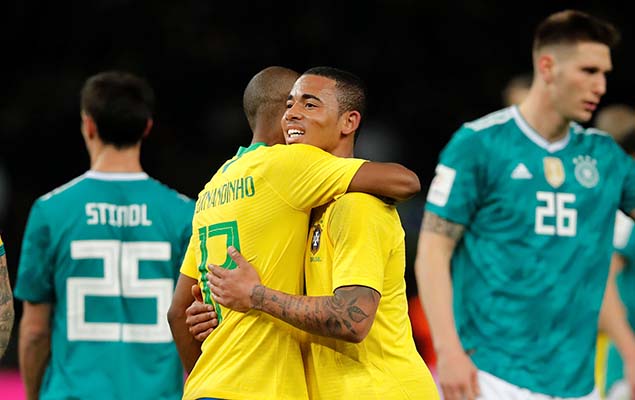Latest Photo Galleries
Brazilian Markets
17h36 Bovespa |
-0,07% | 124.646 |
16h43 Gold |
0,00% | 117 |
17h00 Dollar |
+0,29% | 5,1640 |
16h30 Euro |
+0,49% | 2,65250 |
ADVERTISING
Brazilians Coaches No Longer Sought after by Teams Looking to Clinch World Cup Spot
03/28/2018 - 11h34
Advertising
ÁLVARO FAGUNDES
DANIEL E. DE CASTRO
Brazil's cold streak in the past editions of the World Cup has diminished the prestige of one of the country's main soccer exports: Brazilian coaches. National soccer teams started looking elsewhere for coaches following the 2006 World Cup in Germany.
During the qualifiers for the 2006 World Cup - just after Brazil had won its fifth World Cup - 16 national teams were coached by Brazilians, varying from countries such as Portugal and Togo. During the qualifiers for the 2018 World Cup, however, only three modest teams were coached by Brazilians: Barbados, Belize and East Timor.
It was Spanish and Argentine coaches who prevailed in the Russia World Cup Qualifiers, along with coaches from France and Germany: two countries that have traditionally exported soccer coaches.
The only Brazilian coach who will be in the 2018 World Cup is Brazil's very own Tite. Similarly, the only Brazilian coach in the 2014 edition was Brazil's Luiz Felipe Scolari.
| Wolfgang Rattay/Reuters/Folhapress | ||
 |
||
| Gabriel Jesus celebrates after scoring against Germany during their international friendly on Tuesday |
LOW ON PRESTIGE
The demand for Brazilian coaches goes way back. In the late 1960s, World Cup champion Didi led the Peruvian national team to the World Cup, while Carlos Alberto Parreira, who was 24 at the time, became the coach of Ghana's national team.
In the decades that followed, various national teams looking to improve their performance turned to Brazilian coaches backed with extensive curriculums, not to mention the prestige that the Brazilian national team had.
According to professionals in the sector, the decline of Brazilian coaches that has taken place can be attributed to a series of failures.
The list includes poor performances in the recent editions of both the World Cup and the America Cup, lack of tactical knowledge and barriers that make it harder to enter the international market.
OPTIMISM
Despite the decline, the professionals who were interviewed are optimistic. "Momentary phases are not more significant than the success of the Brazil School. [A change] will come with Tite, who has been reintroducing a form of playing, and with this coming World Cup," said Sebastião Lazaroni, who was the Brazil coach in 1990.
"Brazilian coaches have a reputation. We didn't win five World Cups with Brazilian coaches by chance," said Paulo Cesar Carpegiani.
Translated by THOMAS MATHEWSON



